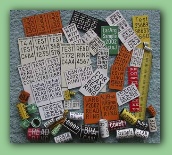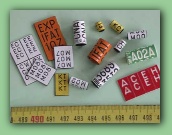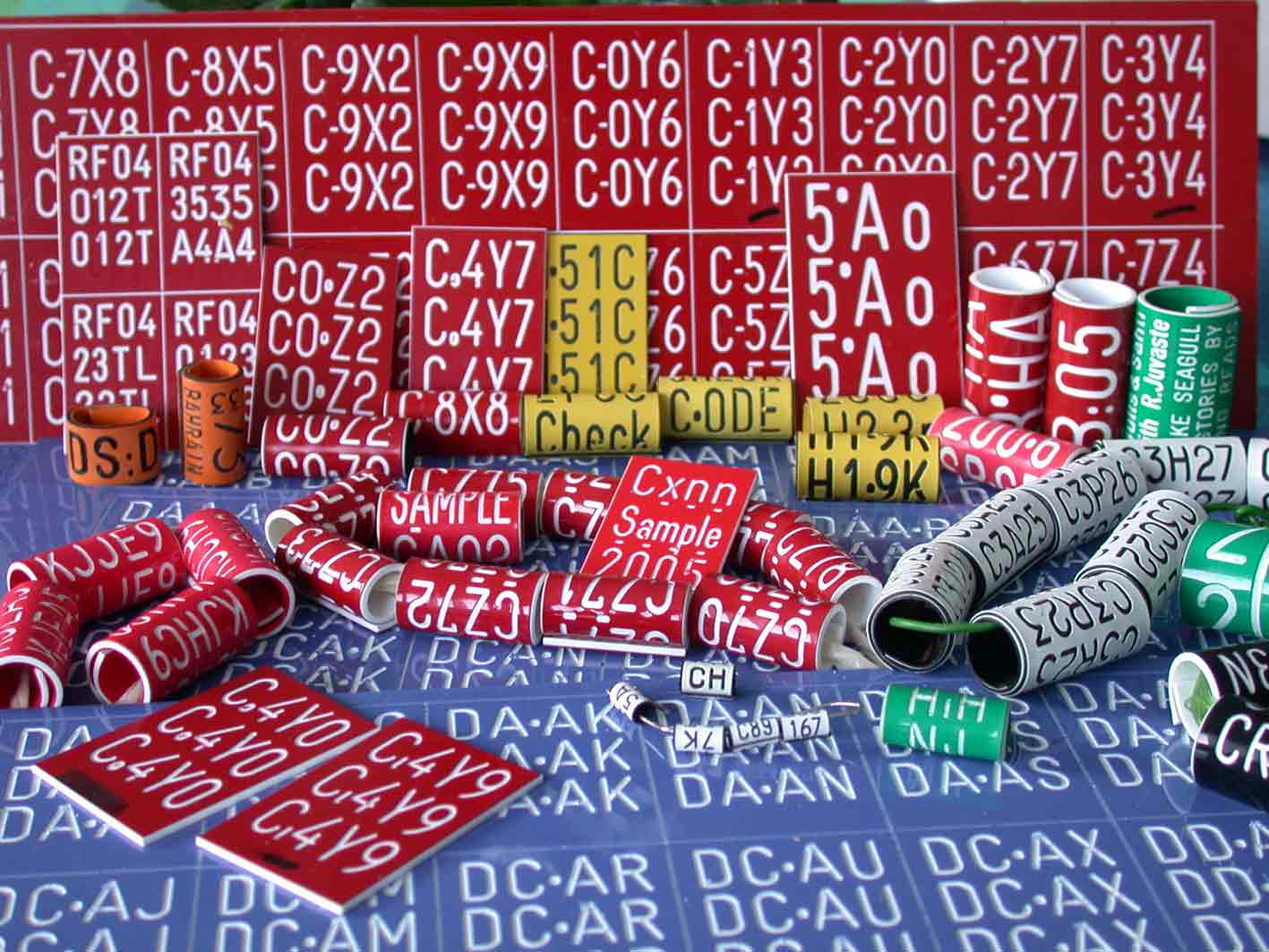Technology
LOOK AT CHECK CODES and BEST READ RINGS AT END of this page
For the individual identification of birds
many marking (ringing) methods have been used. Most common methods are
combinations of colour rings, colour rings with characters, multi-coloured
rings, leg flags, neck collars, wing tags, nasal tags and saddles. Most of these
marks are designed to be read at
field from distance by telescopes
and binoculars. Look at some examples of marking systems, ring types and coding
in web-pages >>
http://www.lpo-anjou.org/baguage/code_BTO.htm
and http://www.pwrc.usgs.gov/BBL/homepage/aboutaux.htm
and http://www.holmer.nl/Colourrings.htm
There are three different types of common
plastic rings: overlapped, spiral and butt-end rings. In spiral rings the
plastic strip is rolled at least two times around the leg. In overlapped types
the ring is closed with small overlap. All these rings should be clued in order
to prevent rings to get stuck. Some are closed also with snap-fits. Rivets are
also used to ensure some large rings.
The codes are normally engraved to read
rings. Typically numbers and common letters are used in codes. These characters
can be in different positions. These should be marked down when reading the
rings, because they can be a part of the code of check-code. Some additional
small figures, like lines or dots, can also be used. (Look at the marking
systems in www-pages above.)
I am very interested to develop new type of
read rings. I have made myself
totally over 200 000 read rings (for many species, to over 20 countries) and
ringed about 13 000 gulls with read rings and read personally over 80 000 day-reads. I make limited amount of read rings
as a hobby also for foreign projects (but not in summer). I worked
for many years (retired since 2009) as a lecturer of plastic materials and technology in University of Applied Sciences (earlier North
Karelia Polytechnic).





